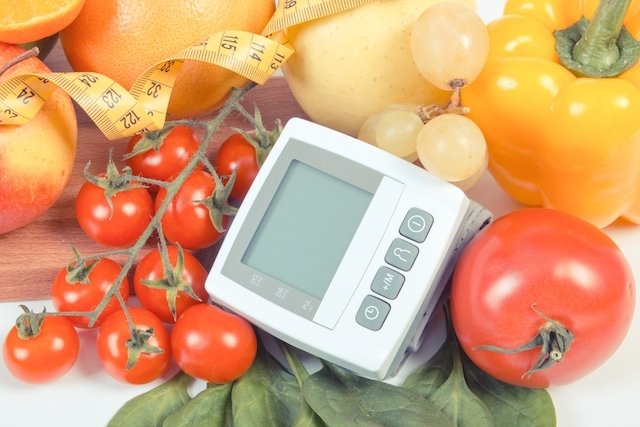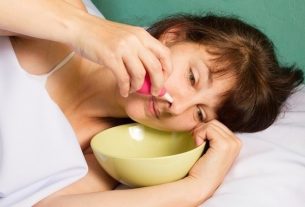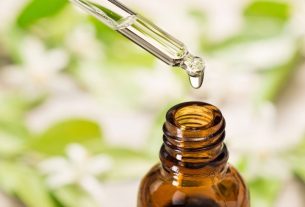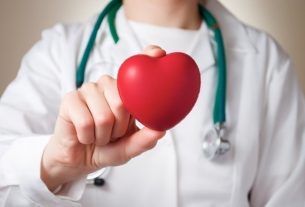Controlling blood pressure without medication is possible, with habits such as practicing physical activity 5 times a week, losing weight and reducing salt in your diet, as well as increasing your consumption of omega-3s and avoiding alcoholic beverages or caffeine.
These attitudes are essential to prevent pre-hypertension from becoming high blood pressure, and can also be advised by the doctor as an attempt to control blood pressure, before starting treatment with medication, for 3 to 6 months, if the pressure is below of 160×100 mmHg.
If you have already started taking medications, they should not be stopped without medical knowledge, however, these changes in lifestyle habits are also very important so that the treatment can control blood pressure correctly, even allowing for a reduction in blood pressure. doses of medications.

12 ways to lower blood pressure naturally
Some natural ways to lower high blood pressure are:
1. Lose weight
Losing weight and controlling your weight is very important, as there is a direct relationship between weight and blood pressure, which tends to increase in overweight people.
In addition to reducing total body fat, it is also very important to reduce the size of the abdominal circumference, as abdominal fat represents a great risk for cardiovascular diseases, such as heart attack.
To ensure a controlled weight, it is necessary to have a weight that corresponds to the body mass index (BMI) between 18.5 and 24.9mg/kg2, which means that the person has the ideal amount of weight for their height.
The abdominal circumference, measured with a measuring tape in the region of the navel, must be below 88 cm, in women, and 102 cm, in men, to indicate abdominal fat in the amount that is safe for health.
2. Adopt the DASH diet
The DASH-style diet proposes a diet rich in fruits, vegetables, whole grains and dairy products, such as natural yogurt and white cheeses, and low in fat, sugars and red meat, which has been proven to contribute to weight loss and blood pressure control.
It is also important to avoid consuming canned, preserved or frozen ready-to-eat foods, as they contain excess sodium and preservatives that lead to increased blood pressure and should be avoided.
Furthermore, it is important to drink 1.5 to 2 liters of water per day, to keep the body hydrated, balanced and allow the organs to function properly.
3. Consume only 6 g of salt per day
It is very important to control salt consumption so that less than 6 g of salt is ingested per day, which corresponds to 1 level teaspoon, and is equivalent to 2 g of sodium.
To do this, it is necessary to observe the amount of salt present on the food packaging, in addition to avoiding using salt to season the food, preferring the use of spices, such as cumin, garlic, onion, parsley, pepper, oregano , basil or bay leaves, for example. Learn how to grow and prepare seasonings to replace salt.
Changing eating habits can reduce blood pressure by up to 10 mmHg, being a great ally to avoid or avoid higher doses of medication. Check out other food nutritionist guidelines and diet menus to control high blood pressure.
4. Drink garlic tea
Garlic tea is a great natural way to lower high blood pressure, as it contains allicin in its composition, which helps to increase the dilation of blood vessels, improve blood flow and reduce the heart’s effort to pump blood to the body. See other natural teas to lower blood pressure.
To make garlic tea, place 1 clove of chopped and crushed garlic in 100 to 200 mL of water and bring to a boil. Then, turn off the heat, let it rest for 5 to 10 minutes, strain, wait for it to cool and then drink.
Another option is to use garlic oil supplements, which can be found in health food stores or compounding pharmacies.
5. Exercise 5 times a week
Practicing physical activities, for at least 30 minutes to 1 hour a day, 5 times a week, is essential to help control blood pressure, reducing it by 7 to 10 mmHg, which can help to avoid the use of medication in the future or to reduce the dose of medication.
This happens because exercise improves blood circulation through the vessels and helps the heart function properly, in addition to helping to control the levels of hormones that increase pressure, such as adrenaline and cortisol.
Some excellent options are walking, running, cycling, swimming or dancing. Ideally, anaerobic exercise should also be combined, with some weight, twice a week, preferably after medical approval and with guidance from a physical educator.
6. Take in more potassium and magnesium
Ingesting more potassium and magnesium appears to be associated with better blood pressure control, because they are important minerals for the proper functioning of the nervous system, blood vessels and heart muscles.
The daily magnesium recommendation is up to 400 mg for men and 300 mg for women and the potassium recommendation is around 4.7 grams per day, which can be obtained through a diet rich in vegetables, such as pumpkin, kale and spinach, and fruits, such as avocado, banana and kiwi, for example.
Check out the video below for other foods that also help reduce high blood pressure:
7. Quit smoking
Smoking causes injuries and compromises the function of blood vessels, in addition to contracting their walls, which causes increased pressure, in addition to being an important risk factor for various cardiovascular, inflammatory diseases and cancer.
Smoking is not only related to increased blood pressure but, in many cases, it can even nullify the effect of medication in those who are already taking the treatment.
8. Decrease stress
Anxiety and stress increase the levels of some hormones, such as adrenaline and cortisol, which accelerate the heartbeat and constrict blood vessels, increasing blood pressure.
The persistence of this situation can also increase pressure, which makes treatment more difficult and increases the risk of cardiovascular diseases, such as heart attack and stroke.
To combat stress, it is recommended to practice physical exercise, activities such as meditation and yoga, in addition to encouraging travel and social gatherings, for example, which help regulate feelings and control hormone levels in the body. In intense cases, it is also recommended to seek professional help, through psychotherapy and consultations with a psychiatrist.
9. Avoid consuming alcoholic beverages
Alcoholic beverages can cause an increase in blood pressure, even in people whose blood pressure is within normal limits.
This is because alcohol causes blood vessels to narrow, making the heart work harder to supply blood and oxygen to the tissues, increasing blood pressure.
Additionally, alcohol can interfere with high blood pressure medications, increasing the risk of side effects.
Therefore, the consumption of alcoholic beverages should be avoided as much as possible or consumed in moderation, not exceeding 30 grams of alcohol per day, which is equivalent to 2 cans of beer, 2 glasses of wine or 1 dose of whiskey.
10. Reduce sugar and carbohydrate consumption
Reducing your consumption of sugar and simple or refined carbohydrates, such as white bread, sweets, white flour, biscuits, ready-made sauces or soft drinks, helps you lose weight and lower high blood pressure.
This is because these foods favor the accumulation of body fat, as they are very high in calories.
Therefore, it is recommended to reduce the consumption of sugar and refined carbohydrates and give preference to complex carbohydrates, such as brown rice, whole grain bread, oats, legumes, vegetables and fruits, for example.
11. Increase your omega-3 consumption
Omega 3 is a type of good fat that has a powerful anti-inflammatory action, promoting the release of nitric oxide, a substance that increases the dilation of blood vessels, improving blood flow, which helps to lower blood pressure naturally.
Furthermore, omega 3 also helps to inhibit the accumulation of fats in the veins and arteries, preventing the development of cardiovascular diseases such as atherosclerosis, heart attack or stroke.
An excellent way to increase your consumption of omega 3 is to eat salmon, tuna or sardines at least 3 times a week or chia seeds and flaxseeds, chestnuts, walnuts and olive oil every day.
Another option is to consume an omega 3 supplement in the form of capsules, which are sold in pharmacies, drugstores and nutrition stores. See other benefits of omega-3.
12. Decrease caffeine consumption
Caffeine, present in coffee, green tea or black tea, for example, can temporarily increase blood pressure, for up to 3 hours after consumption, even in people with controlled blood pressure.
This is because caffeine can promote a narrowing of blood vessels, leading to an increase in blood pressure.
The ideal is to avoid or reduce the consumption of caffeinated drinks as much as possible, or consume decaffeinated coffee, for example.
Check out the following video, with Dr. Ronaldo Gismondi, what to do to control your blood pressure:

Sign up for our newsletter and stay up to date with exclusive news
that can transform your routine!
Warning: Undefined array key "title" in /home/storelat/public_html/wp-content/plugins/link-whisper-premium/templates/frontend/related-posts.php on line 12
Warning: Undefined array key "title_tag" in /home/storelat/public_html/wp-content/plugins/link-whisper-premium/templates/frontend/related-posts.php on line 13




